Description
One of the fruits of John Elliot’s employment as the Southern Railway’s first Public Relations Officer (indeed the first executive anywhere in the world to carry that title) was the publication of an attractive series of themed guide books encouraging travel by Southern. “Come Abroad With Us” was the most lavish by far and was intended to help stimulate traffic to the Continent which had been slow to revive after the Great War. The Southern’s fleet of steamers had been severely depleted by enemy action, a substantial proportion of the male population of Britain had been forced to travel abroad between 1914 and 1919 and had no wish ever to do so again. Holidays with pay, were still the exception rather than the rule, and during much of the 1920’s large areas of Belgium and Northern France were in ruins, the Dutch were not particularly popular as a result of their ambiguous neutrality and their sheltering of the abdicated Kaiser As for visiting Germany!…
Paradoxically it was the wishes of the bereaved to visit war graves and battle fields which led the first revival in travel to the Continent . While the wealthy reverted to peace time haunts – Biarritz, Nice, Florence, Venice – once the Trains de Luxe began running again, the less well-off could not afford the time for lengthy train journeys, and contented themselves with destinations adjacent to the Chanel Coast.
The author and artist are apparently two “confirmed bachelors” (although this was not in the 1920’s the slightly pejorative term it would become in the 50’s and 60’s) and (still unusual for a pair of unrelated middle-aged, upper middle-class men in this decade) on first name terms.
Ernest Pendarves Leigh-Bennett (c.1882-1937) was a magazine journalist and novelist employed by John Elliot initially to write a monthly article for the season ticket holders relating to train services called “Over the Points”, and then guide books to countryside and golf courses served by the Southern. Leonard Richmond (1889 – 1965) was a versatile artist, skilled in the use of a variety of media. He studied at Taunton School of Art and Chelsea Polytechnic and enjoyed a considerable reputation in Canada, as a War Artist attached to Canadian soldiers in France. He and Leigh-Bennett would collaborate once more on “Devon and Cornish Days (1932), also for the Southern Railway.
Somewhat disingenuously the book claims to be “…here and there impressions of two innocents abroad”. Given that Leonard had been an artist on the Western Front during the Kaiser’s, War, subsequently working in Canada and the USA, while Edward lets slip that at one time he lived in Paris and cannot refrain from mentioning the water hazard at the 14thor the nasty dog’s leg in the 9th for almost every golf course passed, these two are plainly seasoned travelers. There is a bit of a puzzle too as to the intended readership of the book. “…a man pokes his head in from the corridor suggesting dinner when you have just had it at the club.” Then there is “The Casino does not admit patrons after 8pm, unless wearing evening clothes.” There is more than a hint here of inviting the reader to belong to a slightly higher strata of society. Some passages are reminiscent of the thrillers written by the contemporary author E. Phillips Oppenheim “We Cosmopolitans of course know which table to reserve in the restaurant ant at the Gare du Nord”. ( Prodigals of Monte Carlo, c1926 ) It is the aspirational suburban dwelling city worker and his wife, who see the glamorous boat trains pass the end of their garden, while they sit and read their two volumes per week from Smith’s or Boot’s lending libraries who are the target audience.
“Come Abroad With Us” should be regarded as an engaging work of part fiction, about two jolly chaps away for a month in the Continent. For all the jolly badinage about eating and drinking too much (when an early night is suggested so that a dawn steamer can be caught on the Rhine “Oh I don’t think so, Old Boy!”) it is evident that each visited some places at different times. Leonard is absent on departure from England and first appears on page 27, the last day spent in Brittany but his quota of pictures is present. At Ypres he must have spent many hours on his study of the ruined Cloth Hall while one wonders if Edward was there at all. In his description of the Menin gate he fails to mention the two significant facts as true today as in 1929. The thousands of names inscribed are only for those who have no known grave. Even 100 years on, when identifiable remains of a soldier are found he is given a funeral with full military honours in one if the tens of thousands of neat graves scattered throughout the area and his name is chiseled out from the gate. A “Missing In Action” is missing no more. Every night since the memorial was completed (except during German Occupation in WW II) a bugler sounds the “Last post”. How did Edward miss these ongoing acts of Remembrance? Then there is Germany and in particular Munich.
Edward describes a peace loving good humoured, hard- working populace, anxious to forget the unpleasantness, full of love and admiration for the English. Admittedly Edward spent most of his time in bierkellers, or a mechanical museum, but the first sentence here hardly seems accurate for Munich during the rise of the Nazi Party, Was Edward really there, with blinkers on, or was he describing an earlier visit?
A beautifully produced book, in high Art Deco style.
PREVIEW BELOW – MAY TAKE A WHILE TO LOAD.
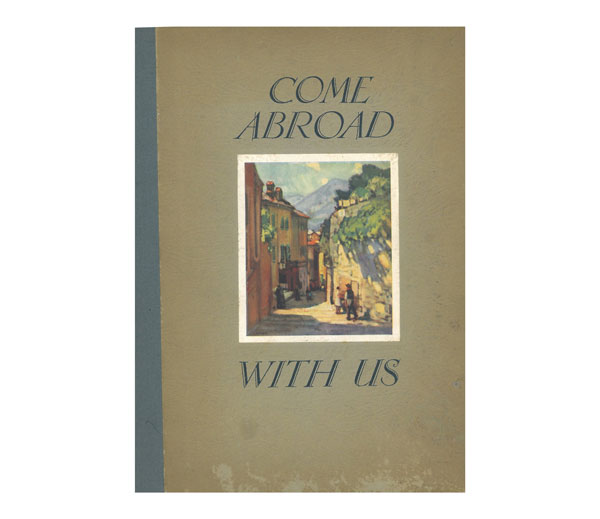
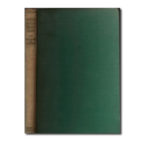
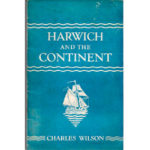
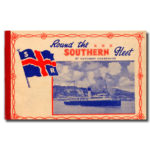
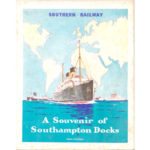
Reviews
There are no reviews yet.